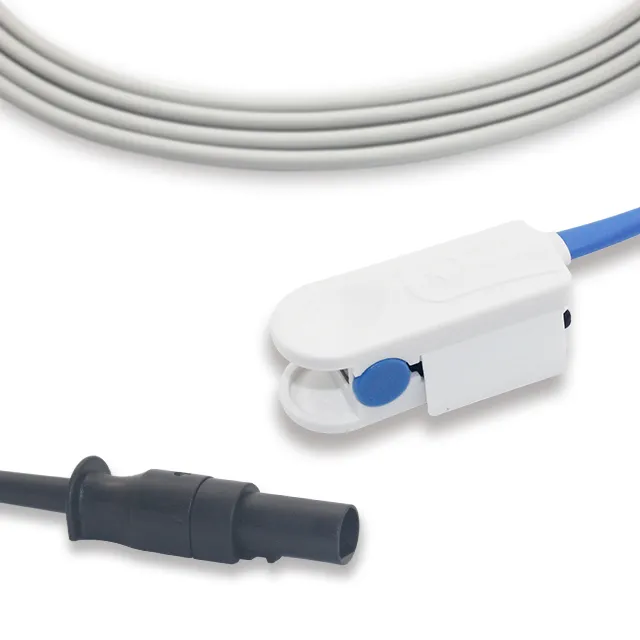News
Site Editor
 Site
https://medke.usa18.wondercdn.com/uploads/image/63d7b0e4f285a.png
This article aims to delve into the accuracy of SpO2 sensors and their significance in healthcare.
Site
https://medke.usa18.wondercdn.com/uploads/image/63d7b0e4f285a.png
This article aims to delve into the accuracy of SpO2 sensors and their significance in healthcare.
Are SpO2 Sensors Accurate for Measuring Oxygen Saturation?
Views: 644
Author: Site Editor
Publish Time: 2023-11-10
Origin: Site
In the realm of healthcare technology, the accuracy of SpO2 sensors in measuring oxygen saturation has become a topic of increasing importance. As these sensors play a critical role in monitoring respiratory health, understanding their reliability is essential for both healthcare professionals and patients. This article aims to delve into the accuracy of SpO2 sensors and their significance in healthcare.
Understanding SpO2 Sensors
What are SpO2 Sensors?
SpO2 sensors, or oxygen saturation sensors, are devices commonly used to measure the level of oxygen saturation in the bloodstream. These sensors work by emitting light through the skin and measuring the amount of light absorbed by oxygenated and deoxygenated blood. The results are then translated into a percentage, indicating the saturation of oxygen in the blood.
The Role of SpO2 Sensors in Healthcare
SpO2 sensors are widely employed in various healthcare settings, including hospitals, clinics, and even home healthcare. They are commonly integrated into pulse oximeters, which are portable devices used to monitor oxygen levels noninvasively. These sensors are especially valuable for patients with respiratory conditions, such as chronic obstructive pulmonary disease (COPD) or asthma, as they provide crucial insights into respiratory function.
Assessing Accuracy
Factors Influencing Accuracy
While SpO2 sensors are generally considered reliable, several factors can influence their accuracy. External factors like poor circulation, skin pigmentation, and ambient light can affect the sensor's ability to provide precise readings. Additionally, the sensor's positioning on the body, whether on the finger, earlobe, or forehead, can impact the accuracy of the measurements.
Technological Advancements Enhancing Accuracy
Advancements in sensor technology have significantly improved accuracy over the years. Modern SpO2 sensors are equipped with sophisticated algorithms that can compensate for various environmental factors, providing more reliable and consistent readings. Calibration processes and quality control measures have also been refined to ensure optimal performance.
The Significance in Healthcare
Monitoring Respiratory Conditions
In the healthcare industry, accurate measurement of oxygen saturation is crucial for managing and treating respiratory conditions. SpO2 sensors enable healthcare professionals to assess the effectiveness of respiratory interventions, such as supplemental oxygen therapy, and make informed decisions about patient care.
Early Detection of Respiratory Issues
The noninvasive nature of SpO2 sensors makes them invaluable for continuous monitoring, allowing for the early detection of respiratory issues. This early intervention can be critical in preventing complications and improving patient outcomes.
Trusting in Precision for Enhanced Patient Care
In conclusion, SpO2 sensors are valuable tools for measuring oxygen saturation and monitoring respiratory health. While their accuracy can be influenced by various factors, technological advancements have significantly improved their reliability. In healthcare, the data provided by these sensors is instrumental in managing respiratory conditions and ensuring timely interventions.
At Medke, we understand the critical role that accurate SpO2 measurements play in healthcare. Our state-of-the-art SpO2 sensors are designed with precision and reliability in mind, contributing to the overall well-being of patients. Choose Medke for advanced healthcare solutions that prioritize accuracy and patient care.
